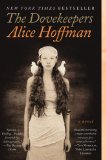Summary | Excerpt | Reading Guide | Reviews | Beyond the Book | Readalikes | Genres & Themes | Author Bio

A Novel
by Alice Hoffman
Sia wouldn't hear of it. "You're wrong," she remarked. "You would be the first one they'd see. Your hair is so beautiful it makes me think of flame trees."
I wondered if her words were a curse, for I had been standing beside a flame tree when my brother admitted he was an assassin. It was not possible for her to know, but on those rare occasions when I dreamed of my mother, she came to me as a flame tree, and in my dreams I bowed my head before her and wept.
When I studied Sia, I could see that her intention was to be kind on a night pierced by danger and uncertainty. We walked close, drawn together by the peril around us. We were journeying through the Valley of Thorns, under a sky hung with so many stars they made me think of stones in the desert, countless, too white to look upon. They say the face of our Creator is like that, so bright that a single glance brings blindness. I kept my eyes downcast. I would have preferred to walk alone, but Sia set her pace with me, her arm linked through mine.
She confided that my father and her husband had killed an important Roman general and that was why we had made haste to flee. She herself had cleaned the blades of their knives, washing the metal in pure water, reciting a prayer as she did. She was obliged not to ask questions, and to do as her husband demanded, but she had an urge to confess that she had handled a knife streaked with human blood, a confession made to me as we trudged after the men. Her voice broke as she spoke of it.
"How will God punish me?" she murmured.
I hushed her - women were not to speak of such matters - but it was too late. Ben Simon had overheard and turned to glare at us. He was a tall, imposing man, with dark olive skin, fearsome, a deep scar etched across one side of his face. Once again I gazed at the ground in an attempt to avoid him. He called sharply for Sia to be quiet.
"Let us not speak of this," she said then. "Sometimes it's better not to know what men must do."
WHEN WE could walk no farther, we stopped at a resting place, an oasis the assassins' friends had spoken of in glowing terms. Every Zealot had a plan should disaster come, a direction in which he would run if need be. This was the first stop, a small green space where camels who had run off during the chaos had gathered. The beasts ran when we approached, kicking up dust, afraid that we would throw ropes around their necks, as unwilling to be slaves as we were. There was a citron tree growing there. The fruit of the tree is called pri etzhadar, the lemony etrog that is made into a jam. These specimens were bruised, sour without honey to sweeten the taste, but we didn't care. We were starving and thirsty. We ate in silence, wolfing down our meager supper. In the distance, we could see Jerusalem burning. The smoke rose up in a funnel cloud, then disappeared. I counted stars, so bright above us. Sia sat beside me and whispered. She insisted it was a good omen to find the citrus on the first night of our journey, and although I did not argue with her, I knew otherwise. This bitter tree was nothing more than a key to a door and that door opened into the desert.
I had overheard my father speaking with Ben Simon. We were not headed toward Alexandria, or toward Cyprus. Instead we were taking the ancient route that led toward the Salt Sea, the route of the doomed. In the month of Av, the birds were unable to fly where we were going, even at night. It was too hot, the air unrelenting, an oven. You could bake bread on a stone. We would roam as far into the desert as we could, for it was there my father believed we would find the Zealots and their fortresses, my brother among them.
On the night we fled, as the Temple burned and the sky was ringed with fire, there was a light breeze. This would be the coolest time we would know before we entered into the wilderness. But there was to be something more that cast me into a burning world on the night we left Jerusalem. I walked down to a well that had been abandoned long ago. There was no longer any water. That wasn't really a surprise. People often lied about water, promising pools where there were none, dreaming of water in a world composed of dust. All the same, if someone crouched on hands and knees to dig, it was possible to find mud. Drained through clenched fingers, water would well up, there for whoever was willing to sink to her knees. I wasn't too proud to do so.
Excerpted from The Dovekeepers by Alice Hoffman. Copyright © 2011 by Alice Hoffman. Excerpted by permission of Scribner. All rights reserved. No part of this excerpt may be reproduced or reprinted without permission in writing from the publisher.
Most of us who turn to any subject we love remember some morning or evening hour when...
Click Here to find out who said this, as well as discovering other famous literary quotes!
Your guide toexceptional books
BookBrowse seeks out and recommends the best in contemporary fiction and nonfiction—books that not only engage and entertain but also deepen our understanding of ourselves and the world around us.